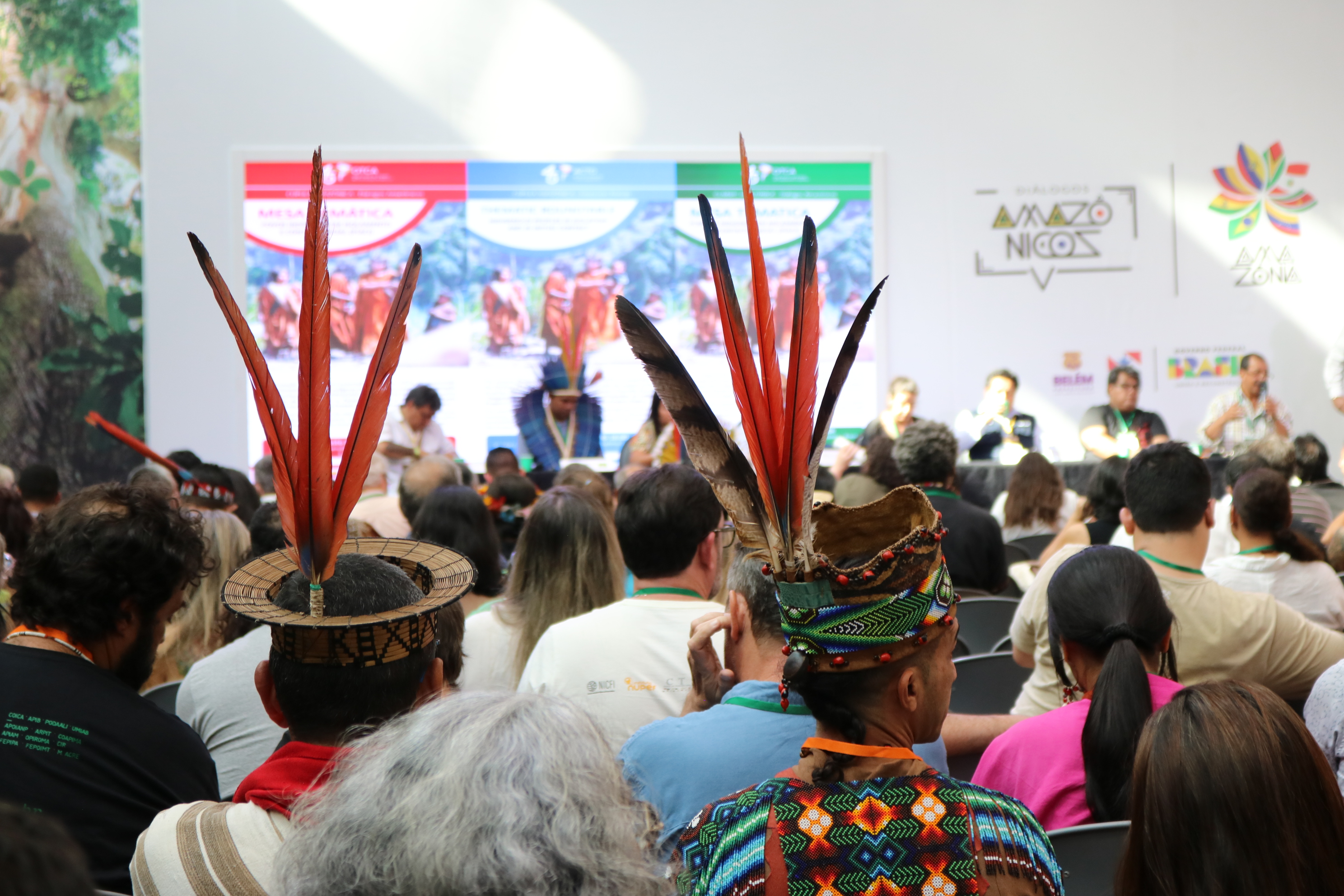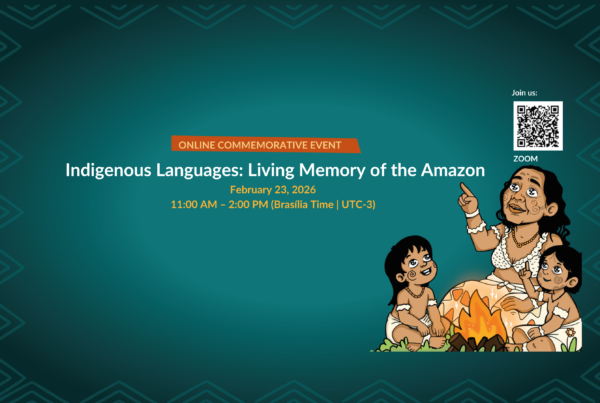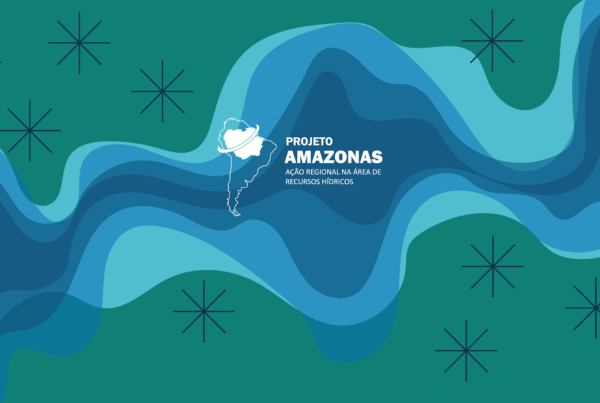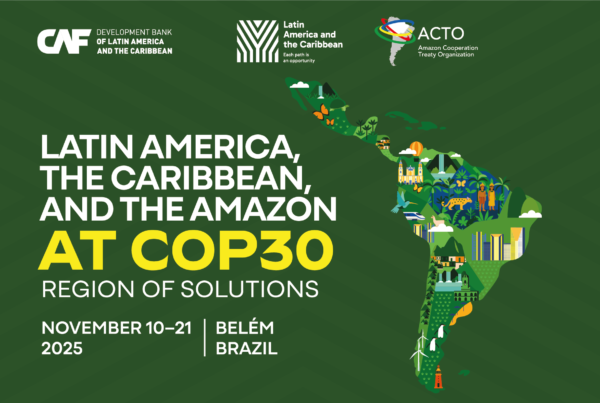Representatives of governments from the eight member countries of the Amazon Cooperation Treaty Organization (ACTO), civil society, multilateral organizations and indigenous leaders discussed the comprehensive protection of Indigenous Peoples in Isolation and Initial Contact (PIACI) at the thematic table held this Saturday (5) during the Amazon Dialogues in Belém (PA). The recommendations drawn from the debates will be delivered to the Plenary “Indigenous Peoples of the Amazon: a new inclusive project for the region”, which will be held this Sunday (6).
The Executive Director, Ambassador Carlos Lazary, highlighted that ACTO represents eight Amazonian countries, where several indigenous peoples live. “The work with indigenous peoples is one of the fundamental axes of ACTO, through the implementation of projects, as well as the allocation of space for convergence for political and technical dialogue. In this sense, we have developed a significant work of protection projects for indigenous peoples and those in initial contact”, he said.
The president of the National Foundation for Indigenous Peoples (FUNAI), Joenia Wapixana, stressed that when thinking about the Amazon, it is necessary to look at the people who live there. “Indigenous peoples are part of the Amazon and make their collaboration based on their own values, sustainable management, the way they deal with the land. That is why the demarcation of indigenous lands is important. Studies indicate that the most protected areas are where indigenous peoples are, in addition to protecting biodiversity, it has a very great cultural richness “, he said.
During the debates, Cacique Raoni, a Brazilian indigenous leader of the Kayapó ethnic group, known internationally for the struggle of indigenous peoples, was present and warned about the climate changes he has noticed. “We are experiencing the signs of change, making it very hot, intense, and also, strong winds. In the Kayapó myth, in the times of our ancestors there was man, and our creator brings us the sun. The whites do not know this, the whites do not know that this time of great heat can come back again,” he said.
The director of the Indigenous Peoples department of the Ministry of Health of Peru, Roman Galán, and the senator of Colombia, Julio Cordero, stressed the importance of cooperation to ensure the protection of indigenous peoples. The indigenous woman, Weya Cahuya, from the Waodani ethnic group in Ecuador, also emphasized that all indigenous people in the Amazon region, from the eight countries, must unite to defend their other relatives for their survival and development.
Also at the table were the Secretary of Human Rights and Territory of the Ministry of Indigenous Peoples, Eunice Kerexu; the PIACI specialist of the Ministry of Health of Ecuador, Alfredo Amores and the coordinator of the Coordination of Indigenous Organizations of the Brazilian Amazon, Elcio Machineri.
The panel entitled “Cooperation Models and Perspectives for the Protection of Indigenous Peoples in Isolation and Initial Contact (PIACI) in the Amazon Region” was organized by ACTO and the Ministry of Indigenous Peoples of Brazil with the collaboration of FUNAI, the Secretariat of Health of Indigenous Peoples (SESAI/MS) and the Coordination of Indigenous Organizations of the Brazilian Amazon (COIAB).
Check here the recommendations of the Thematic Table



